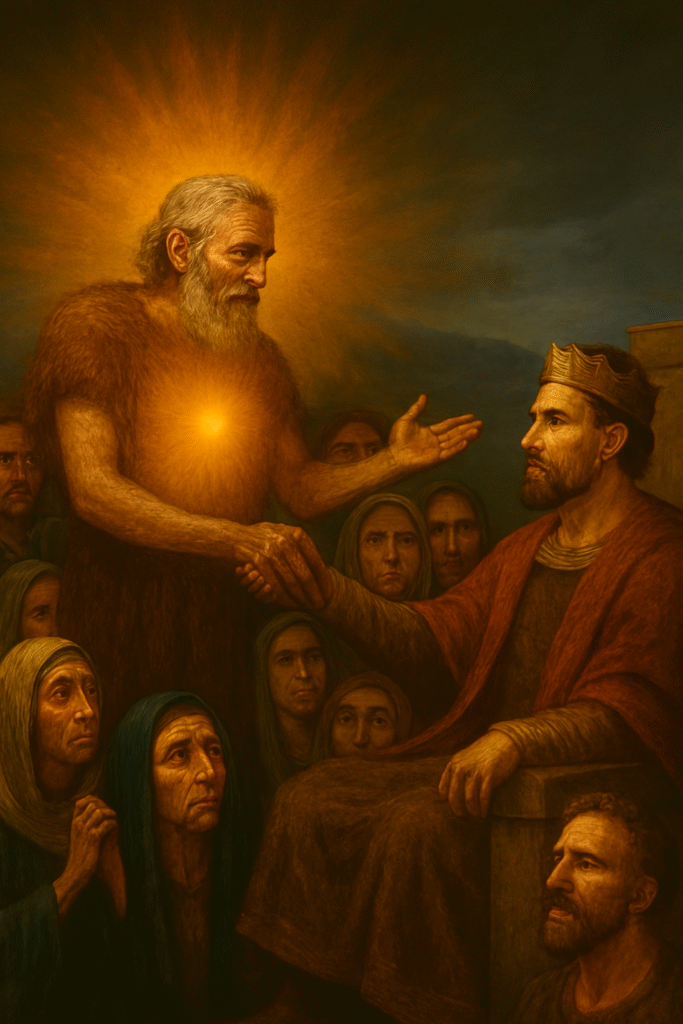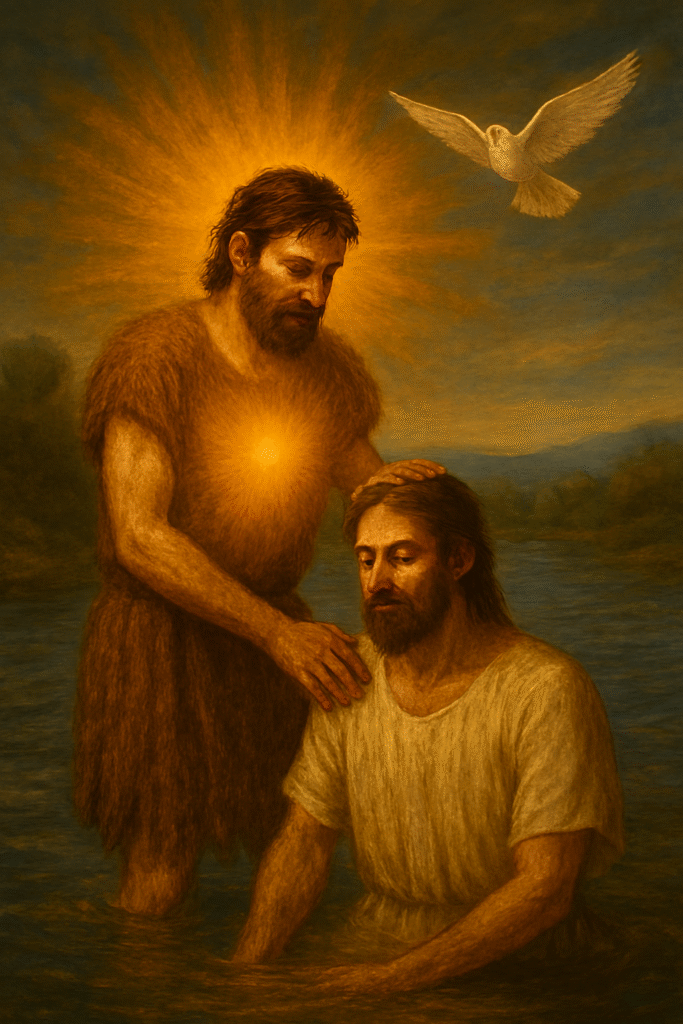This article explains the biblical meaning of “Return” as taught by Dr. Leland Jensen, showing how prophecy is fulfilled through mission rather than physical reappearance.
Summary:
- “Return” in prophecy refers to a mission being fulfilled by another person, not the same physical individual. Not a re-incarnation either.
- Jesus identified John the Baptist as the return of Elijah based on mission and message, not identity. The same light in a new lamp.
- Christians today often expect the same Jesus to return physically, repeating the error Jews made about Elijah.
An Explanation of the Return – Parable of Jesus, by Jesus

-Revelation 3:7 (KJV)
Dr. Leland Jensen devoted fifty years to teaching — a long and honorable ministry. I had the privilege of studying with him daily for four years (1990–1994), during which he welcomed seekers from around the world and shared a fresh understanding of religion and the divine plan in motion.
In his second fireside class, The Proofs for Jesus, one of the many gems was his explanation of the meaning of the word “Return.” Dr. Jensen, holding the “Key of David,” unlocked mysteries of both the Old and New Testaments.
I first published this explanation online in 1997. It feels fitting to give it a “second coming” now. Enjoy the read. — Robert
Excerpt from the Proofs for Jesus Fireside by Dr. Leland Jensen
(Resurrected 09-11-2025)
But there is a bigger reason why the Christians are not looking for anyone other than Jesus coming to be the Second Christ. Although there are two Christ’s prophesied, they’re looking for the same Christ. This is because the Christians say that Jesus physically, bodily resurrected from the grave and went up into heaven and that He will return again from this heaven. Therefore, since they think the same person will come again, they cannot accept another person to be the Second Christ.

This situation is analogous to the situation in which Jesus sent His disciples out to teach the Jews that He was the Messiah. These disciples were just ordinary people—fishermen, a bank teller, a tax collector, and so forth. They came up against the intelligentsia of the Jewish people—the rabbis, the priests, the lawyers, the scribes. The scribes told the disciples that Jesus couldn’t possibly be the Messiah. They pointed out that the book of Malachi, the last book of the Old Testament, says that the prophet Elijah must return before the Messiah (Malachi 4:5). And according to the second chapter of the Second Book of Kings, Elijah ascended into heaven in a flaming chariot.
So, the disciples came back to Jesus and asked Him, “How come it says right here in Malachi that Elijah the prophet is going to come first?” In other words, how can you claim to be the Messiah when we haven’t seen Elijah come streaking across the sky in a flaming chariot?
Do you know what Jesus told them? Jesus told them that John the Baptist is Elijah! The disciples were dumfounded. They said to Jesus, “John? John is your cousin, your aunt Elizabeth was pregnant with John when your mother Mary was pregnant with you. You grew up together, you played marbles together. How can this man John be Elijah?” (I’m paraphrasing here). Jesus said, “If you are willing to accept it, he is Elijah.“ (Matthew 11:14).

-John the Baptist
Well today the Christians accept that John the Baptist is the return of Elijah although he’s a different person. They went to John and asked him if he was Elijah, and he said, “I am not” (John 1:21), meaning that he wasn’t the same person. But Jesus said that John was Elijah.
Jesus was looking at the light, and not at the lamp. For instance, Elijah was living in the desert, wearing a camel’s hair coat, living on locusts and honey, and telling the people to repent and return to the Lord. Nine hundred years later, here comes John the Baptist, walking in the same desert, wearing a camel’s hair coat, living on locusts and honey, and telling the people to repent and return to the Lord. If you looked at one, and then the other, you couldn’t tell the difference. They both had the same message—repent and return to the Lord. They were talking to a wayward people, calling them to have the sin of error washed away from them. Therefore, when it says that Elijah is going to come, it means that someone will come to fulfill that mission, as the forerunner of Jesus.
So the people asked John, “Well then who are you?” He said, “I am the voice of one crying in the wilderness, make straight the way of the Lord, as the prophet Isaiah said.” (John 1:2,3) This was prophesied by Isaiah, that one would come in the wilderness to prepare the way of the Lord. (Isaiah 40:3)

Today the Christians accept that John the Baptist was the return of Elijah, because Jesus said so. But today the Christians are making the exact same mistake the Jews made. It says in the Bible that Jesus went up into heaven just as it says in the Bible that Elijah went up into heaven. And Jesus said He would return, just like the Bible says Elijah would return. Although the return of Elijah was John the Baptist—the Christians say, “No, it must be the same Jesus!” because they have deified Jesus—made Jesus a god. This was a hanky-panky, monkey-business that the pagans did when they came into Christianity, and we’ll get into that later, but first, we need to look at…
About the Publisher
Robert Wright is a Knight of Baha’u’llah, knighted personally by Dr. Leland Jensen for pioneering efforts in teaching and raising a Baha’i community in Anchorage, Alaska. A direct disciple of Dr. Jensen — the promised one from the heaven of prophecy — Robert studied under him and now republishes his teachings, preserving their original form and intent.
With allegiance to Baha’u’llah as Prophet, and to Dr. Jensen as High Priest, Robert Wright serves as a Herald of these words, ensuring they are proclaimed, preserved, and understood in the light of prophecy.
